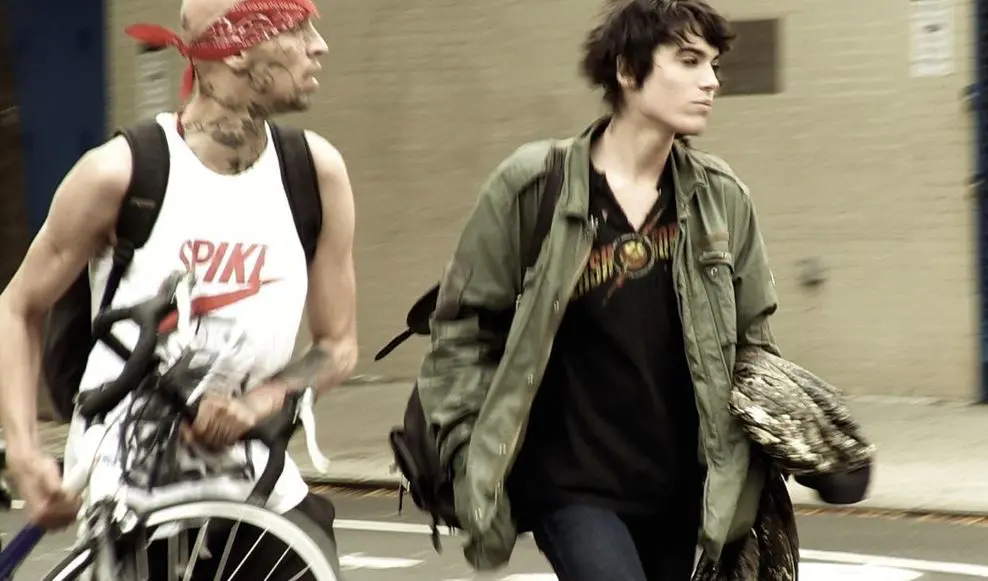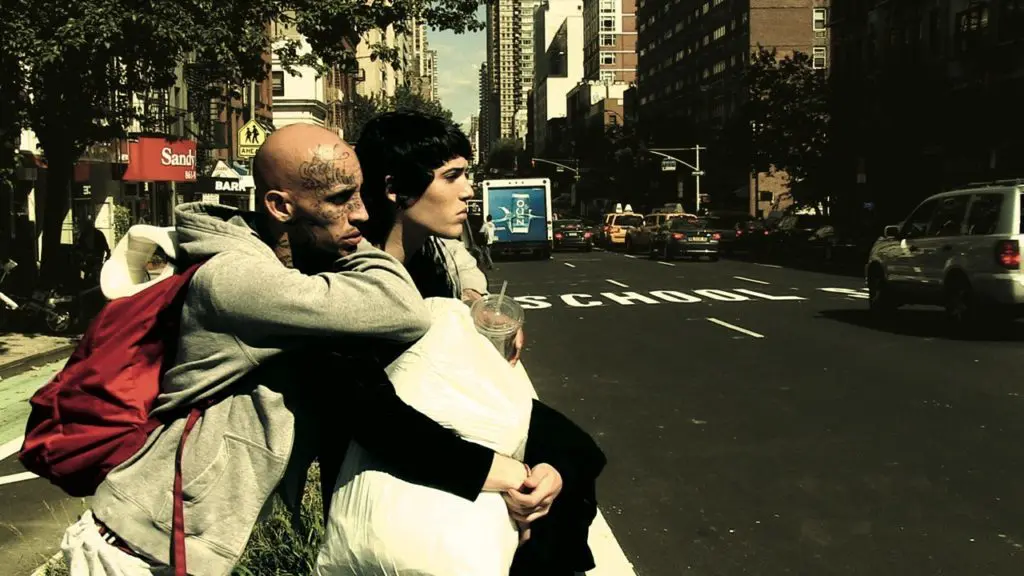Summary
Ekaj is a raw, empathetic piece of cinema that depicts the pain and vulnerability of living in the margins of society.
When you watch a film like Ekaj, it’s clear that you’re witnessing a burgeoning filmmaker who has found her muse and is experiencing a creative inspiration that gives audiences a window directly into their main character’s soul. There are no production values here to speak of — the entire film looks like it was made for a few hundred dollars on film equipment that someone had lying around. And yet it’s utterly transfixing.
Director Cati Gonzalez’s focus on Ekaj, a gay Latino teen who has been disowned by his conservative father and now lives on the street, shows compassion for and interest in people living on the margins of society, whose stories usually go untold in traditional narrative cinema. In a lot of ways, her work in this empathetic film brings to mind that of Sean Baker, the writer and director behind Tangerine and The Florida Project, who similarly uses untrained actors to create a raw and authentic cinematic experience about the forgotten and overlooked members of society.

Ekaj, played by Jake Mestre, is young, naive, beautifully fragile, and intensely vulnerable. He’s a 16-year-old gay teen who seems almost as though he was put on this earth to be preyed upon. He’s deeply in love with on-again-off-again boyfriend Johnny, who is much older, physically and emotionally abusive, and seems to have absolutely no redeeming qualities. Yet Ekaj is utterly devoted to him, which makes no sense except in all of the ways that it makes perfect sense. He’s desperately seeking a sense of love and belonging — and in his incredibly destabilized life where he floats from couch to couch, from hookup to hookup, he craves the security that a steady boyfriend, even one as unquestionably terrible as Johnny, brings.
The only healthy relationship Ekaj has in his life is with Mecca, a small-time thief who seems to understand innately the vulnerability of Ekaj. But rather than exploiting it like so many of the other characters in the film do, he sets out to serve as a sort of mentor for Ekaj, protecting him wherever possible and helping him navigate the world of the streets. There is a sense that Mecca has been where Ekaj is, and that he’d like to shield him from some of his worst experiences. Affection and even love develop between the two characters, their concern and regard for one another the only pure, beautiful thing in a harsh world where everyone seems to have an ulterior motive. It’s only Mecca’s rapidly progressing AIDS that prevents them from developing a physical relationship, but it hardly matters — they’re a couple in every sense of the word.
There are moments in Ekaj where the film’s ultra-low budget hampers the impact of the narrative it’s trying to tell. But those are few and far between. For the most part, it stands as an example of what can be accomplished when you have compelling characters, a keen eye, a willingness to tell authentic stories, and almost nothing else. What Cati Gonzalez does here is remarkable, and should serve as a calling card that, were there any justice in the world, would give her carte blanche and a blank check from some savvy producer to allow her to make films with the kind of raw, compassionate storytelling she’s clearly drawn to.




